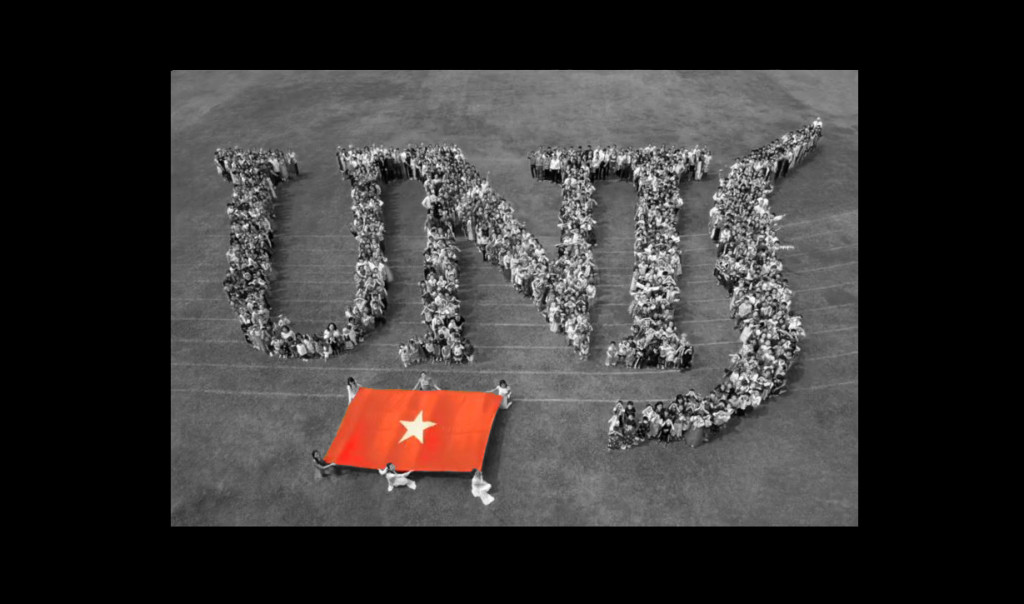The Threat of a Grey UNIS Culture
Note: The references to stereotypes in this article are based on what I have observed and do not literally apply to ‘everyone’.
I’m sure you’ve all had this experience as a kid when drawing a picture or playing with paint. You see all sorts of vibrant colors that you like, and you try to mix them all together to achieve the ‘perfect color’. Unfortunately, you soon realize that all those nice, bright colors simply cancel each other out and become a rather dull and bland grey-brownish mess. Then you realize that you’ve ruined the whole picture that you were so close to completing, and proceed to rip it apart and start over.
Diversity is a wonderful thing, and we have an abundance of it here at UNIS. We have people from all over the world that come together in one place, each one bringing something interesting, new and vibrant into the mixture that is the UNIS culture. But wait, doesn’t this sound awfully familiar? Just as all those pretty colors melded into one ugly mess, we stand the risk of creating a gray and bland multi-culture, where all the unique attributes from each nation seem to vanish, leaving behind only a slightly darker tone of gray-brown.
Have you ever noticed how everyone at UNIS seems to talk with a slight American accent? Even those lovely Indian and Scottish accents are being conformed to the regular ‘UNIS speak’. Being a German myself, I can now easily pass as an American tourist everywhere I go (including Germany itself), simply because of the way I speak. Another example is the clothes we wear. The guys wear three-quarter pants, the girls have significantly shorter pants, and everyone wears closed shoes or flip-flops. The only exception seems to be UN day, where people do not feel judged or standing out when they wear something culturally unique. And since when is talking about religious beliefs considered a taboo in our school? In my 5 years at UNIS, I have heard two to three people at most talking about their personal beliefs and openly question topics that our society so blindly accepts.
The way I see it, the reason for the conforming to popular culture is, seemingly, none other than our best buddy, peer pressure. Now I understand that every time someone says words like ‘peer pressure, popularity and social acceptance’, we have a tendency to just shut down, or jump to the next article. Admit it, you have had that impulse, at least once, reading this so far. (I give my thanks to all those who have the mental discipline to keep on reading, I appreciate it). As I was saying, we are pulled into the vortex of generic crowd-following all the time, and we often drag our friends in as well.
And this is the key issue of our problem. Rather than melding together into one gray blob, we ought to stand independent and proud of our individual cultures and personalities. When was the last time you stood against the flow and followed your own ideas? And trust me, if we all take a moment to stop and consider this, we will realize that the flow doesn’t actually exist anymore, because all around us, people have also stopped and started considering the exact same thing. Imagine the change we could make in this school if we all did something unique and individual, as paradoxical as that sounds. And then,we would be able to really see what it means to be culturally diverse, and how to appreciate the international community we live in.
Editor’s note: Jonas Fiebrantz is the current Secretary of the High School Senate






Brendan McGibbon • Nov 12, 2013 at 7:37 am
What a refreshing article. Very enjoyable and provoking.
I understand the need for people to join groups and seek acceptance however it would be great to be accepted by virtue of who you are and it would be nice for people to take the time to ask “who are you?”. I think your article revealed a little of who you are.
The concept of diversity if fascinating and at the heart of what UNIS lauds – there are many unexplored areas.
Your writing reminded me of a quote from the great Irish poet Brendan Kennelly “If you want to serve the age, betray it.” .
It should be UN day every day – after all this is UNIS!
Nathalie Grun • Nov 1, 2013 at 5:19 am
Jonas, I just want to THANK YOU for sharing your thought provoking insight into challenging conformity. Your thoughts have inspired me on a personal level and I couldn’t agree with you more. Keep on noticing, writing and confronting the status quo!
Brenda Penrose • Oct 31, 2013 at 1:12 pm
I couldn’t agree more. And while we’re on the topic, don’t forget the language we speak. Media soundbites and blogspeak just won’t do. Let us preserve our individuality in our ways of expressing ourselves too and make Mrs. Penrose’s day with our eloquence.
Josiah Bloemberg • Oct 31, 2013 at 4:08 am
Very interesting perspective, especially since a year ago you spoke on UN Day about “the color” we have from our diversity. Has anything changed since then or just your perspective?
I also think, when it comes to our “blending colors”, a large factor is the fact that the we are always taught, being a UN school, to be tolerant and accepting of other cultures. Although this is a very good trait to learn, I feel it has been taken too far. On the topic of religion, you don’t talk about your beliefs as it might be “offensive” to another culture, and therefore disrespectful and not tolerance. Tolerance, however, should be accepting other cultures and traditions, not changing your own so not to disrespect others. In a perfect world, if everyone had full tolerance of other perspectives, then we could all be as flamboyant and outgoing about our beliefs as we want, as we would know that no one would judge us for our beliefs.
For this to be the case, the school would need an environment and an atmosphere where people do not feel judged, which I think may be the core of the problem. As a UN school we all claim to be “tolerant” and “accepting”, however people here are just as judgmental as anywhere else. The only way to create this atmosphere would be for everyone to have a better understanding of other cultures, so that we could better understand each other and our choices in beliefs and traditions, whether we follow them or not.
This leads to another paradox; how can we learn about other peoples beliefs and cultures when everyone is too afraid to talk about them? I’d say all it takes is for one person to be willing to step up in their group of friends and start the conversation. Once one person opens up and and initiates this sharing of information, then others will follow; the only way to lead effectively is by example.